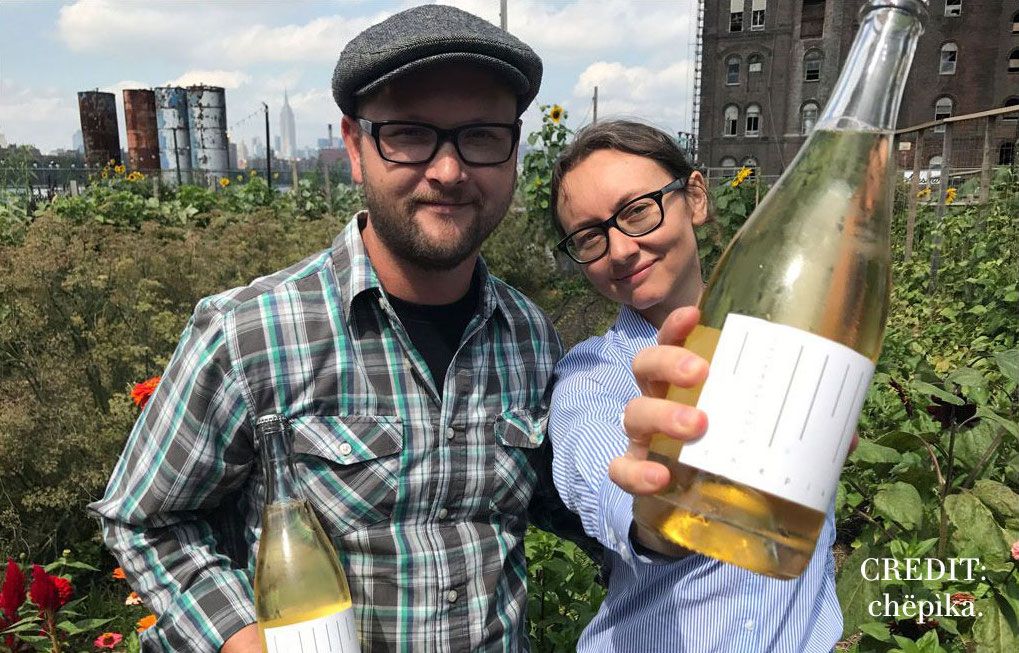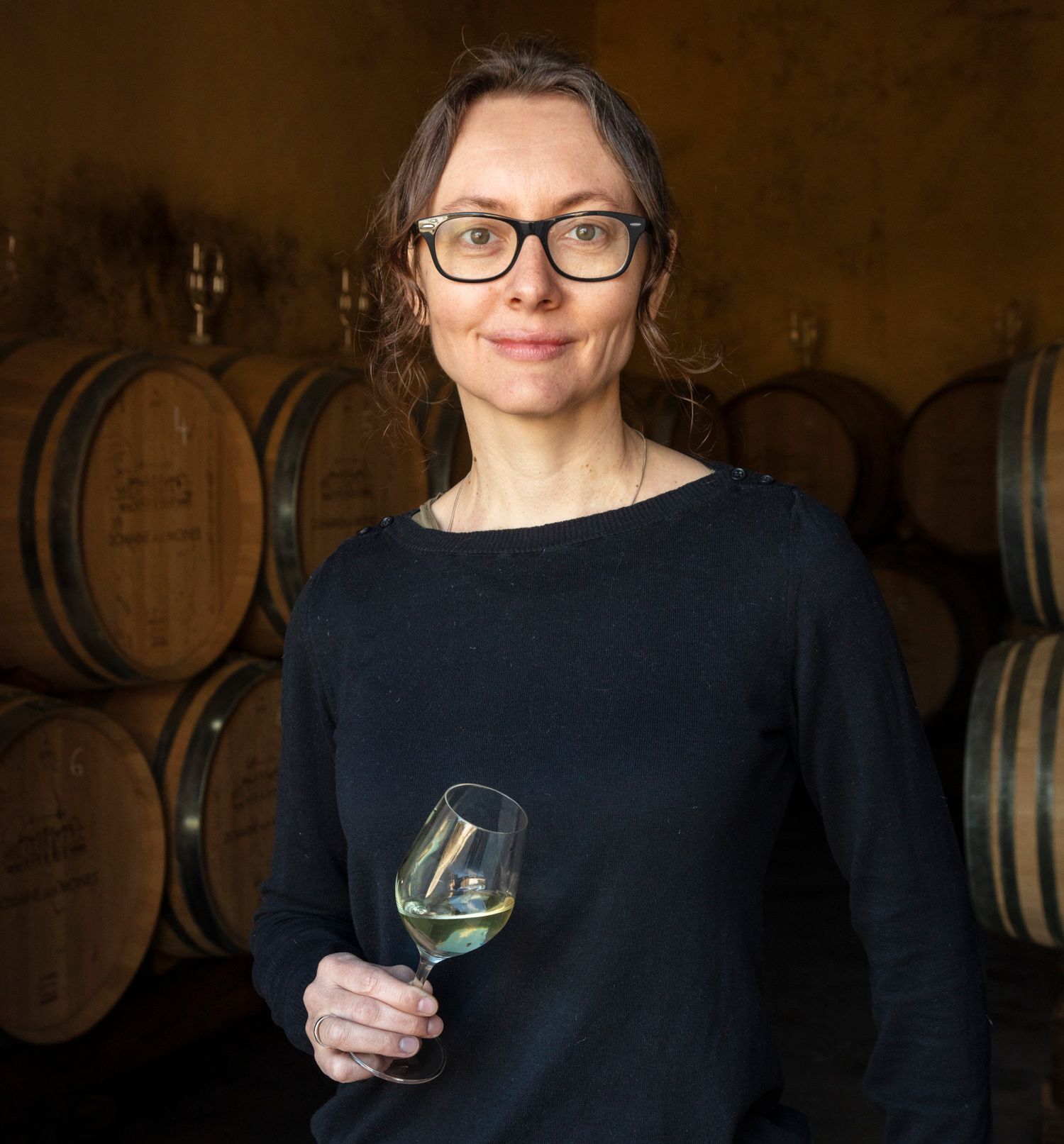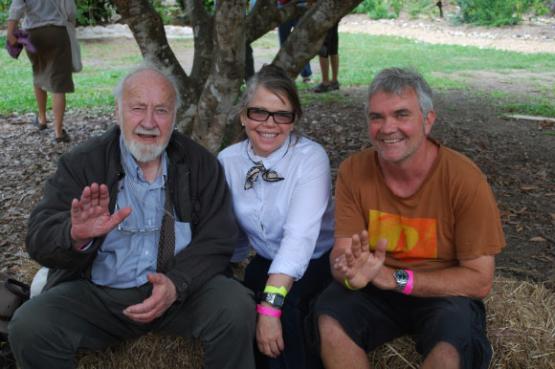
ALIVE! Meet sommelier and guest speaker Pascaline Lepeltier
6 min read
Pascaline Lepeltier is a leading sommelier based in New York. In 2018, she was voted Best French Sommelier; the next year, the prestigious French wine magazine ‘La Revue du Vin de France’ voted her “Personality of the Year 2019” - the first woman to ever win this accolade. Join her live at Alive!

You’ve been exploring natural wines for years. How did it start?
"When I decided to become a Sommelier in 2005, I went to school and my teacher was already into natural, organic and biodynamic wine. So my first harvest in fact was done with pretty hardcore natural wine people: Domaine de Griottes with Patrick Desplat and Babass, Sebastien Dervieux as well as Benoit Courault...And from that I never stopped, you know. It’s funny because I never realised how special these guys were. This is how I started to understand the importance of low intervention wine and really top notch farming."
What still excites you about the journey?
"There's so much to learn. When you come from the sommelier side, you realise that your knowledge in terms of wine and the holistic part of wine is very, very tiny. What excites me today is to better understand what it means to be part of a chain working with a natural product like wine.
I’m also extraordinarily fascinated by a lot of questions that arise today. Like how do we describe an experience? I'm thinking a lot about the language of wine and how to move away from a sterile description and offer an alternative way of understanding. In sharing things that go beyond ‘citrus’ and ‘medium-plus acidity’. How do you talk about energy? How do you talk about those transcendent things?
I've been writing more for French magazines. It's a very tough exercise because you're obviously addressing yourself to a public that is used to reading wine descriptions in a certain way. I find it not satisfying - too narrow minded and I’m not able to express exactly what I'm looking for. So could I really try to communicate which type of feelings wine was having in me?
You realise that the vocabulary exists but you can very quickly look like you're becoming almost a bit new wave. So how do you talk about that? How do you talk about that quality of feeling or texture that you have when you taste a wine that makes it unique?
It's easier on the restaurant floor because I can use a lot of onomatopoeia and gesture. You can maybe make an allusion to music or something else. It’s way more difficult when you're writing for an audience.
My biggest question is whether something can become, in a certain way, objective? Can it transcend the subjectivity of my feeling and my experience? So it's something I'm exploring right now. Is there a future where energy could be really considered a pertinent criteria and how do you describe that? Or salivation? Or other parameters that have been ignored so far?"
What don’t we understand about the vine?
"It is really extraordinary that a vine is a plant that we don’t really understand. What does it mean to have domesticated that plant? Number one is the extraordinarily complex interaction between the root system of this plant and the soil - and we don't even understand the soil!
All the forward thinking movements of agriculture - permaculture and regenerative agriculture and biodynamics - are founded upon the reality that there is this extraordinary exchange between the vegetal and the fungi world with the mycorrhiza. How does it work? How do they interact? How does that impact on the plant itself? What's happening on the ground is still absolutely misunderstood. And we're just at the beginning of that.
I'm also reading a lot about the graft and why there is not more research on trying to find an ecological alternative to phylloxera so we don't have to graft. Because grafting has been, for some people, the original sin responsible for a lot of issues today in the viticultural world.
Grafting has led to an explosion of disease. You realize that every single vine is his own creation, an individual. You have a rootstock and you have a graft and they don't react in the same way. We don't really pay attention to this exchange. It's fascinating to start to read about the physiology of the plant. And then you put that in the context of a vine in a vineyard with so many different vines, and all these vines are interacting with each other and other plants.
It’s absolutely fascinating. People are rethinking the dynamics between what's alive and how not to overly intervene, which is a problem of humankind. Let's go and create a symbiosis. We are really just at the beginning of trying to see what can be done. That's absolutely fascinating."
What are the broader benefits of the natural wine movement?
"Today natural wine is a big word that has become trendy in marketing. What really matters, on a larger scale, is that natural wine was a catalyst allowing some drinkers to realize that viticulture was hitting a wall so they had no choice but to drink heavily processed wine that had to be processed - because the raw material didn’t have the ability to just ferment by itself anymore.
And then to realize that the over abuse - farming-wise - of the 1960’s, 70’s and 80’s led to that reality. The way we eat and drink really dramatically changed because it was necessary to feed more people, but it changed in such a direction that it is poisoning both the land and the people eating the product.
An alternative way is possible. Natural wine and natural winemakers were some of the first to be able to say it out loud, to make it clear that we can make things in a different way. It's possible that the environment can be preserved, that we can reconnect to our land, that we can have a different relationship to nature which is not pure domination but more a symbiosis between human activities, viticulture and the plant.
We can also create an alternative economic system where what we pay is paid to the people working - not for the shareholder or fancy marketing or a fancy cellar. And we can also create an alternative distribution system. Suddenly they were showing that this alternative way of reconnecting to how we eat and drink was possible. And that is way more important, I think, than the question of sulphur in a wine. The stakes are way too high today, I don't think we realize how bad the situation is globally, in terms of food and agricultural quality.
This is why natural wines are so important. There was this loudness, this kind of punk rock attitude which made us react. I think it also became a physical reaction: people falling in love with these wines, because they were just so different and alive."
What are the problems with modern agricultural techniques?
"I’m not saying that modern agriculture is evil. There’s progress and research at every level - biological, chemical, or in terms of just the pure mechanics of invention. I think this is extraordinary. But the way it’s used or abused - that's a problem.
I think one of the most obvious issues is the fact that we are destroying so much of what is produced. When I think about how many hectolitres of wine goes to distillation, or how many crops are not even picked or picked, processed and thrown away.
With natural wines, I have a lot of friends that are very science savvy. They're really keeping themselves updated on the research. Some are really into using modern technology. Some friends of mine in the Loire are teaming up with different types of laboratory because they have an issue with struggling fermentation. They will do some yeast analysis and bacterial analysis over a couple of years to really try to understand what's happening. You need a very specific type of microscope and a research team to do that.
Others are working with an agricultural school to really define a new kind of green cover crop. And also a friend is developing an electric tractor with another company, a lighter type of tractor that will be less compacting."
Where do you stand on the topic of sulfites?
"This question of sulphur has been such a dead hand in a way because it became what a lot of people focused on. Sulfites never killed anybody. Unless you are very heavily allergic. It's one of the most used additives in wine. And it can be used at so many moments. I think instead of saying I don't want to drink wine with sulfur it's more a question of why did the winemaker use it? And trying to understand a bit more the process behind it and the thought process?
It’s the same with the word ‘natural’ in wine, saying there is no natural wine, it’s not possible, a paradox. You know, it doesn't really matter. Let's go to the heart of the question, which is what type of agriculture do you want to support? That's the real question."
Meet @pascalinelepeltier - award-winning sommelier and highly articulate advocate of all things #naturalwine. She will be in conversation with Californian grower-maker Matt Taylor at Alive! on Sunday 5 December. Buy your tickets now.


